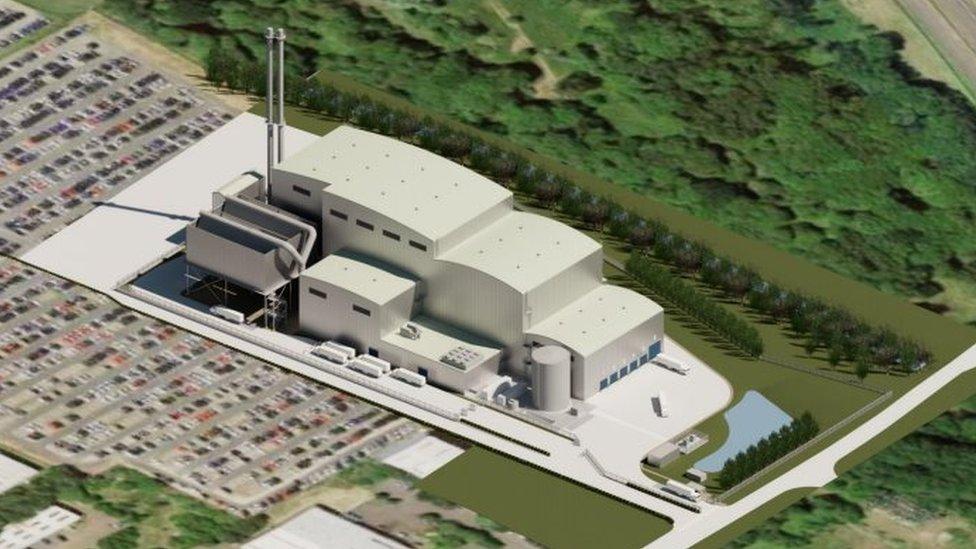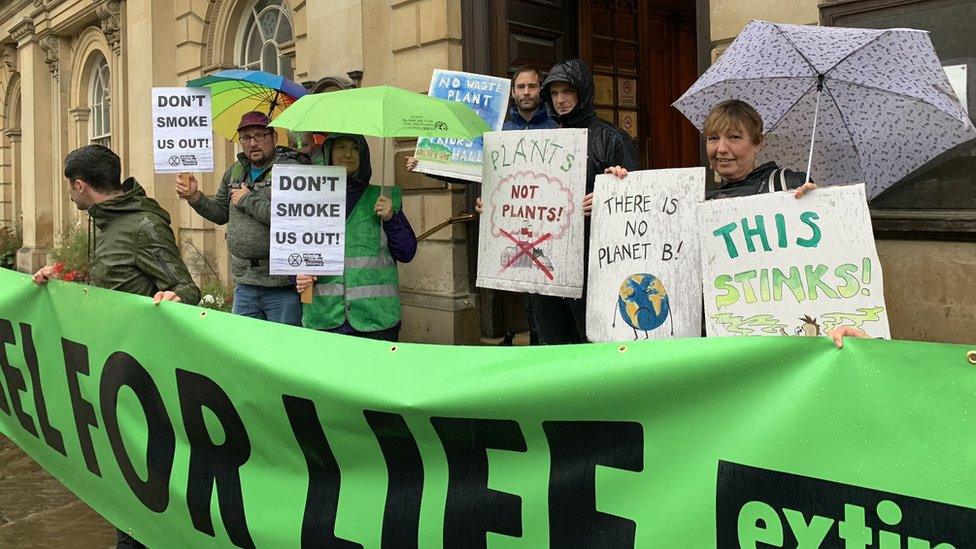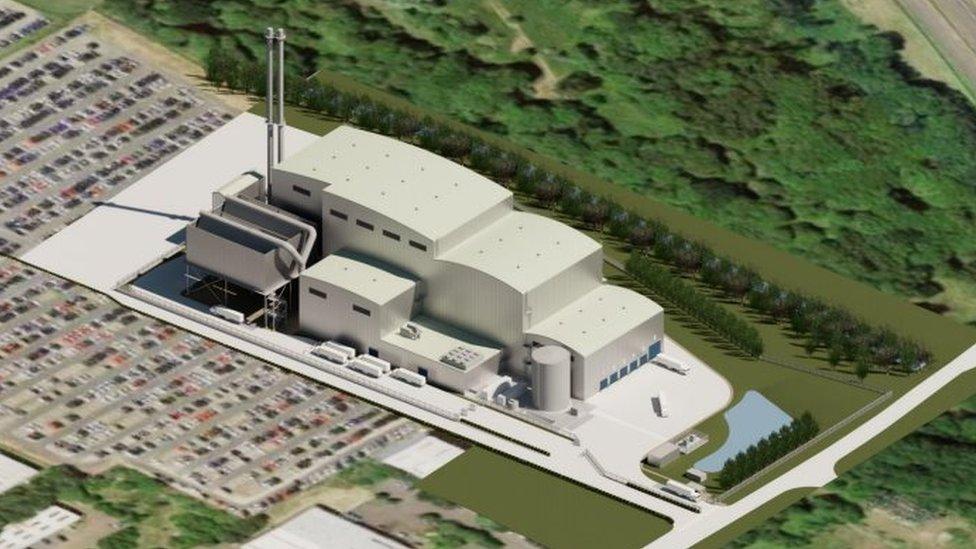Corby incinerator: Northamptonshire County Council approves plans
- Published

The county council approved the building of the incinerator in Corby
Plans for an incinerator at a former steel works have been approved despite objections from nearby heritage sites, schools and a council.
Northamptonshire County Council has granted permission for the plant on Shelton Road in Corby. It will burn up to 260,000 tonnes of waste a year.
The developer said this could generate enough energy for most Corby homes.
East Northamptonshire Council opposed the scheme on environmental and heritage grounds.
The plant will have two 75m-tall chimneys and an estimated 175 daily lorry trips are planned, said the Local Democracy Reporting Service.
East Northamptonshire Council said nearby historic estates at Deene Park and Kirby Hall would be "visually impacted".
The Brooke Weston Trust, which runs Corby Business Academy and also Gretton Primary School, was concerned about air quality and pupil health.
Corby's Conservative MP Tom Pursglove presented a 1,500-signature petition against the scheme to Parliament.

Protesters gathered outside County Hall to demonstrate against the planned plant on Shelton Road, Corby.
The electricity generated by the plant will be available for businesses and homes to buy through an energy company.
Campaigner Lee Forster spoke at the county council meeting said the authority should look at "alternatives" for energy.
"Anything has to be better than burning stuff and blowing it out of stacks," he said.
He also told the meeting the plant should be "next to the landfill rather than a residential estate".
Corby resident Steve Esler said there was "a massive exodus" from the area follow the application for the plant.
Corby Borough Council, which could net £900,000 a year in business rates, did not object.
Public Health England said it had no significant concerns regarding a health risk, providing all appropriate measures are taken "to prevent or control pollution".
Councillors agreed there were no grounds to reject the application, but campaigners said they would appeal against the decision.
Ian Crummack, technical advisor for the developer Corby Limited, said he understood the concerns but there were "many good reasons" to build the plant and it would be "safe".
- Published20 September 2019

- Published22 August 2019
